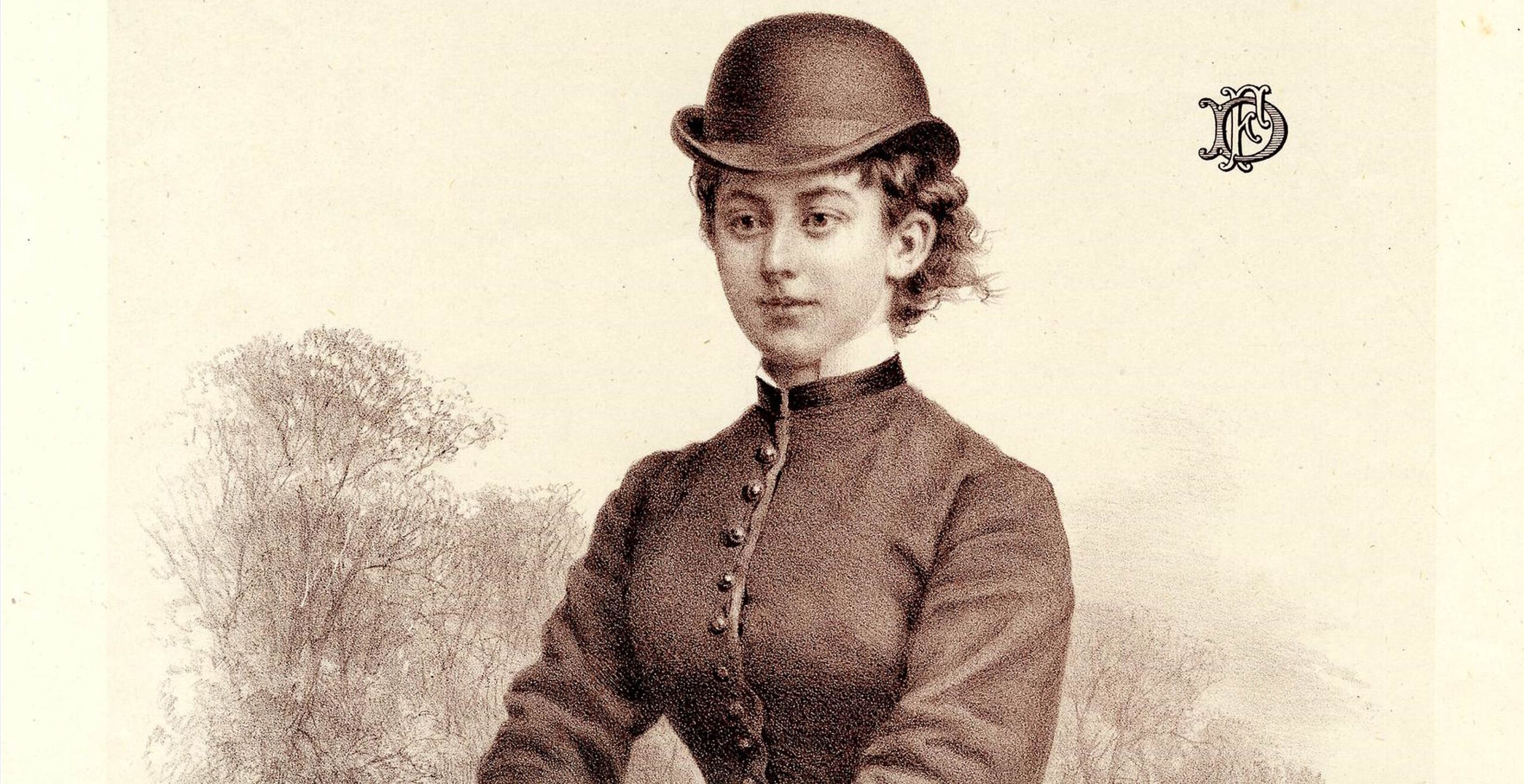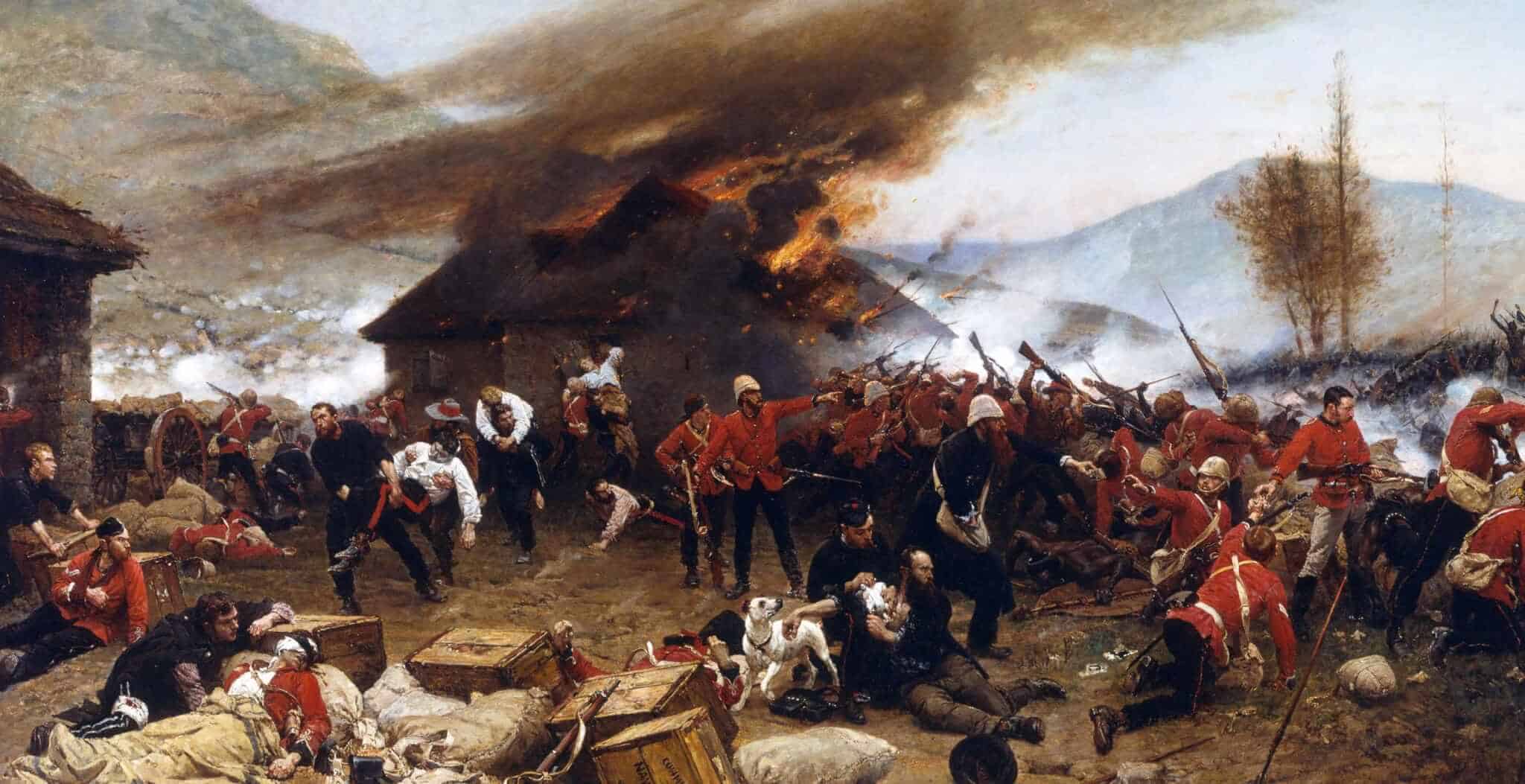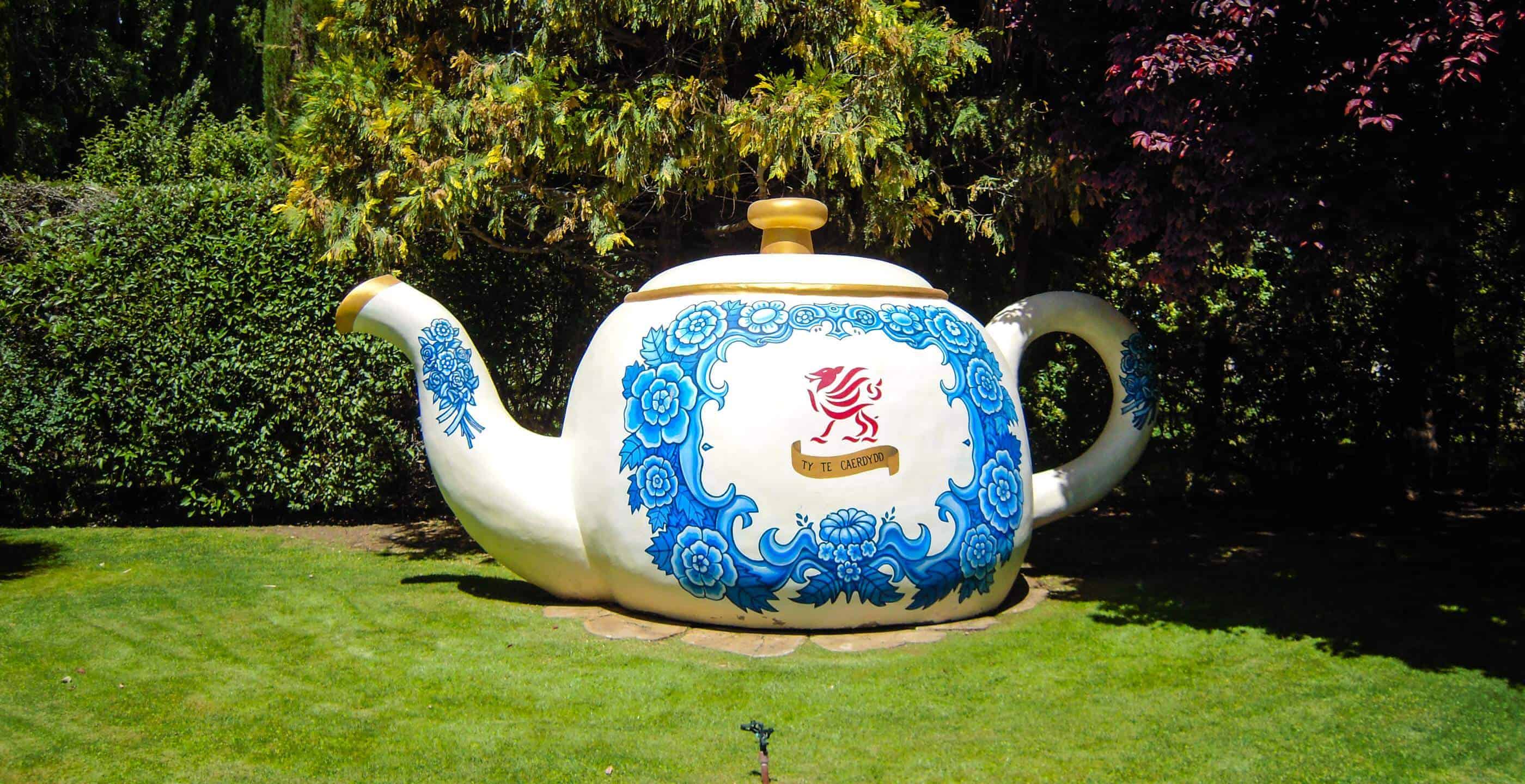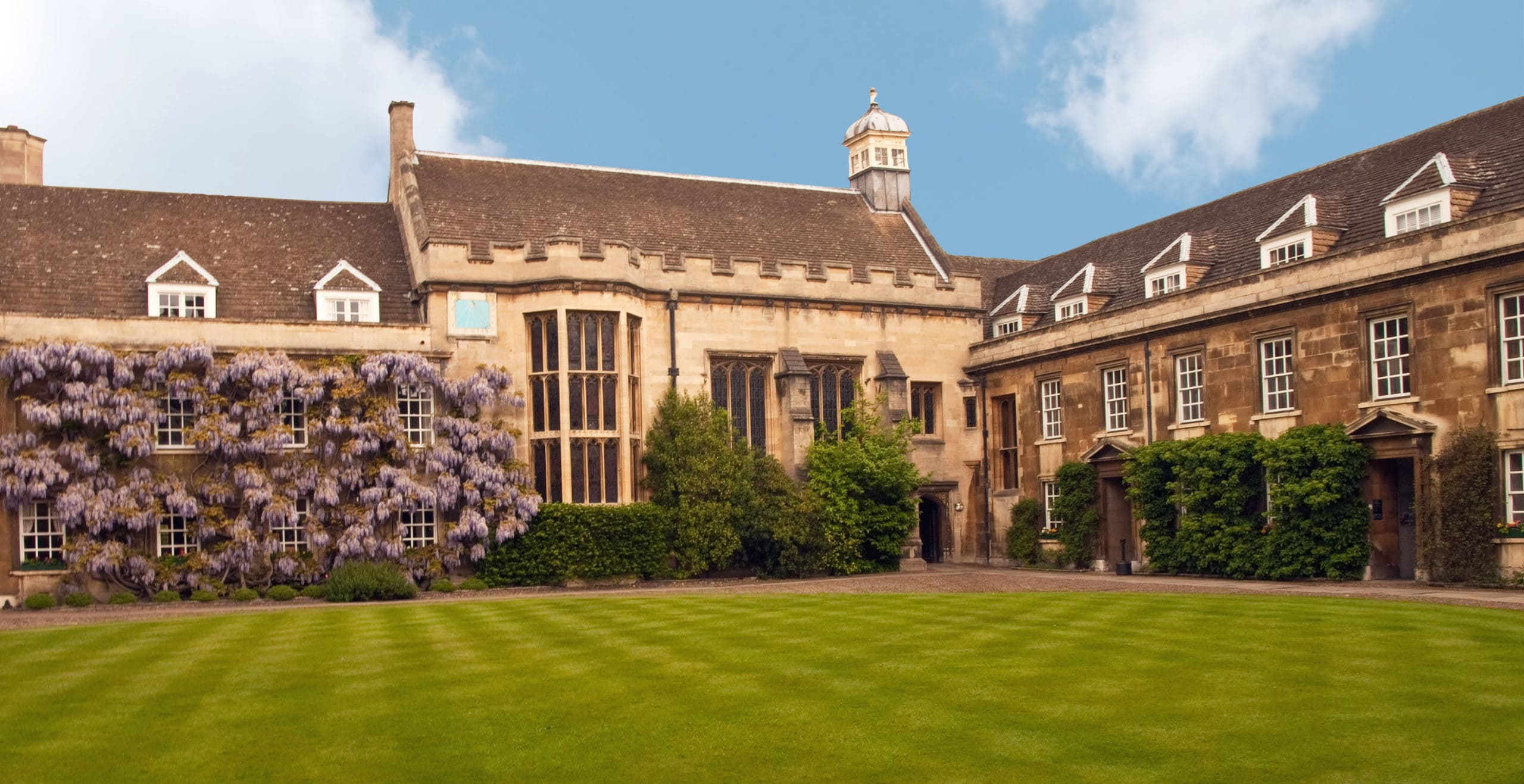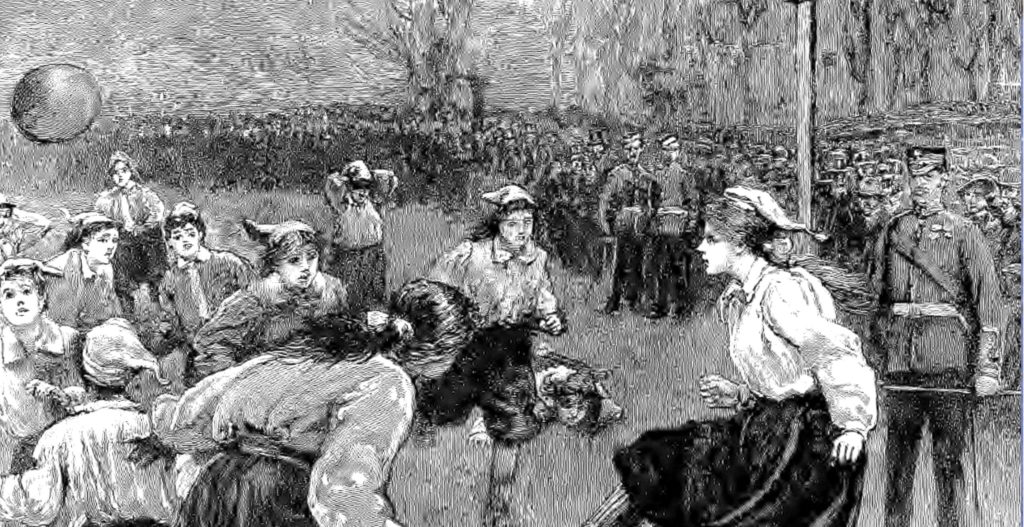Throughout the annals of history, women have been challenging societal norms and patriarchal prejudices, with Lady Florence Dixie amongst them. Despite her nineteenth century upbringing, she threw off the shackles of Victorian sensibilities and embraced a career as a war correspondent, feminist writer, traveller and campaigner.
Florence was born in May 1855 into a titled family, the daughter of Archibald William Douglas (the 8th Marquess of Queensberry) and Caroline Margaret (the daughter of General Sir William Clayton). She was the youngest of six children with a twin brother James who sadly died by suicide some years later.
Despite her aristocratic background and wealth of material comforts, her childhood was marred by tragedy, none more so than when her father died by accidental shooting in 1858.
When she was only ten she also lost her older brother Francis when he died ascending the Matterhorn.
Despite these early tragedies, Florence still embraced a range of activities, including showing an aptitude for sports. She soon became a keen rider and hunter, something which she later change her opinion of and instead joined the Humanitarian League.
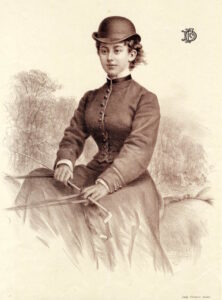
Competitive by spirit, she rode, swam and hunted like her brothers and did not seem willing to adhere to the Victorian beauty standards of the day.
When she was still very young, her mother moved her three youngest children, including Florence, to France and converted to Roman Catholicism. Both her older siblings would become Roman Catholic, her brother Archibald went on to become a priest whilst her sister Gertrude entered a convent in Hammersmith.
After two years, Lady Florence returned to England and was initially taught by a governess who found her unruly. She then went on to a convent school which she resented, especially since she was separated from her twin brother James who went off to boarding school.
She would soon find solace for this loss in her poetry which was later published under the pseudonym “Darling”.
After completing her education, she went on to make a good marriage at the tender age of nineteen to Sir Alexander Beaumont Churchill Dixie. This aristocratic union allowed her to call the country estate at Bosworth Hall in Leicestershire home, as well as making use of a townhouse in Mayfair.
During their marriage, Florence went on to have two sons, the first of whom would become the 12th baronet and her youngest having royalty for a godfather.
Whilst their union was said to be one of contentment, gambling issues for her husband eventually led to the ancestral home having to be sold off in 1885 to pay for the debts he had accumulated. Their relocation would take Florence back to Scotland.
Before such difficulties materialised and not long after the birth of her second son, she along with her husband, children and twin brother took part in a travel adventure, embarking on a voyage which would take them across the Atlantic and down to the rugged landscape of Patagonia in Argentina.
Keen to leave behind the trappings of “civilisation” and Victorian ideals Lady Florence found herself embracing an immersive experience of wild and natural beauty out in Argentina.
Her experiences in South America would end up finding their way into a travel book which she wrote detailing her experiences entitled, “Across Patagonia”. The book proved to be a runaway success with the public, written in a diary style her narrative is full of descriptions of the natural beauty of the continent as well as intriguing observations of the differences with England.
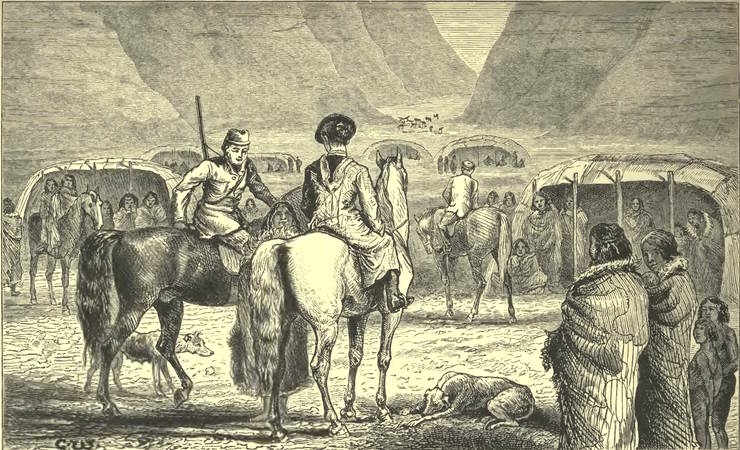
After the publication of the travelogue, Lady Florence also reached out to the pioneering naturalist Charles Darwin, offering him her own observations of the tuco-tuco, a member of the rodent family native to South America and their behaviour outside of their burrows.
Not long after completing her travels in South America she broke new ground by becoming the first woman appointed as a war correspondent. Lady Florence would travel to Africa (with her husband) on behalf of the British periodical, the Morning Post, in order to cover the ongoing Anglo-Zulu war in South Africa.
During this time she visited Zululand and interviewed King Cetshwayo, who was now in the hands of the British after the Zulu defeat.
Her observations as noted in her reports and her “Defence of Zululand and its King from the Blue Book”, in 1882 were said to have been valuable support to the brief restoration of Cetshwayo’s throne.
Her experiences in Africa were expressed in the publication “In the Land of Misfortune”, published in 1882 as an illustration of her strong views of politics in Africa.
She would in the coming years throw herself into writing, proving herself adept at a variety of genres whether it was children’s literature, feminist treatises or travel observations.
Lady Florence who was a member of the National Union of Women’s Suffrage did not shy away from political subjects, using her writing to make her case for equality between the sexes. In her book “Gloriana, or The Revolution of 1900”, Florence explores themes of women and power with the protagonist in her novel allowing women to win the vote and displaying a vision for the future.
Moreover, she also showed a willingness to change her views, none more so than in “The Horrors of Sport” published in 1891 in which she made the case against the hunting of wild animals, a complete turnaround from her younger days of big game hunting in South America. So much so, that she also became Vice-President of the London Vegetarian Association.
Back in the political arena, she also ventured into the contentious debate regarding Ireland, writing an article for Vanity Fair in which she showed support for Irish and Scottish Home Rule.
In addition to topics of gender and social norms, she also targeted religion in her book “The Evolution of Mind”, perhaps a reactionary prose based on her own early unhappy experiences of convent education, her growing atheism becoming evident.
Lady Florence’s challenging literary tone on a range of social issues also found expression in more tangible ways, in particular with regards to female football.
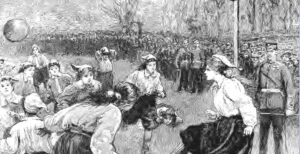
In 1895 the British Ladies Football Club was established by Nettie Honeyball, whilst Lady Florence Dixie said it would be a pleasure to become the first president of the Ladies Football Club.
With her literary career well and truly established, Lady Florence’s status brought much needed attention to the game as she wrote:
“If the British public will only give encouragement to the idea, which is now being put into practice, of football for women it would soon take a firm hold and become an approved custom”.
Lady Florence Dixie in collaboration with Nettie Honeyball (real name Mary Hutson) worked to confront and challenge the barriers to women in sport.
Meanwhile, Florence used her standing and connections to arrange a tour of Scotland and have matches play out in front of a substantial crowd.
In March 1895, their first match took place at Crouch End in the capital in front of almost 10,000 people. Their subsequent games in Scotland would be met by derision from a local journalist however their actions proved to be ground-breaking for the sport as a whole but also for women in general, paving the way for further steps towards equality on and off the pitch.
After a lifetime of dedicating herself to social issues, politics and culture, she passed away in November 1905 from diphtheria at the age of fifty. She would later be buried alongside her twin brother who had committed suicide some years earlier.
Lady Florence Dixie, a member of the Victorian aristocracy, had challenged and provoked the society she had been born into, championing causes she felt strongly about and breaking new ground with her literature and dedication to feminism. Never one to shy away from difficult topics, Lady Florence demonstrated a keen social awareness and curiosity well beyond her time.
Jessica Brain is a freelance writer specialising in history. Based in Kent and a lover of all things historical.
Published: 25th July 2023.
